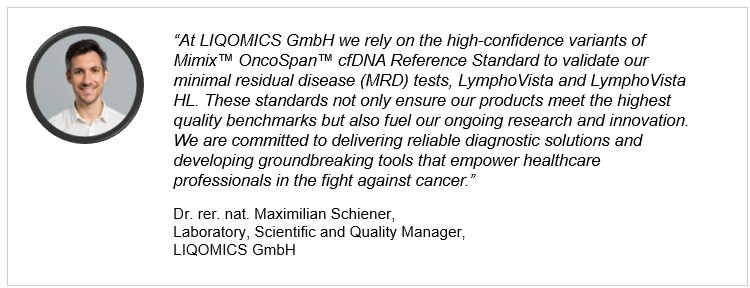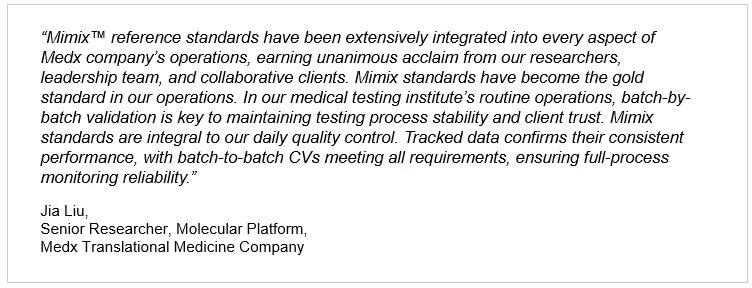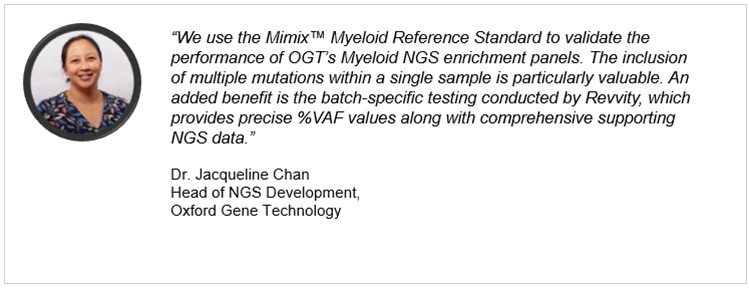
Mimix Reference Standards
For Patient-like Performance
Our Mimix™ reference standards are cell line-derived to maintain genomic complexity and mimic patient material across the molecular diagnostics workflow. They’re now part of Revvity’s comprehensive range of life science and diagnostic solutions.
Please continue to order through this website and note that our billing information remains Horizon Discovery Biosciences Limited.
Find the molecular reference material suitable for your oncology research workflows:
Shop all Mimix products |

Cell line-derived reference standards to closely mimic patient samples and verify research workflows.
Mimix reference standards are platform-agnostic and are compatible across a range of platforms, including Next Generation Sequencing, Droplet-Digital PCR, Real-Time PCR and Sanger sequencing.
We help a range of workflow creators, kit manufacturers and laboratory developers to verify their oncology workflows with our reproducible controls.
Shop cancer-specific standards |
Shop Mimix OncoSpan standards |
Shop Mimix Geni standards |


Shop by analysis technique

Shop by sample type
We work to support our customers in verifying that their molecular assays and workflows are performing as expected by offering:
-
A wide range of off-the-shelf products in multiple formats and allelic frequencies for end-to-end process control; including gDNA, FFPE, ctDNA, and formalin-compromised DNA formats
-
In-house engineering to develop custom controls, allowing researchers to select almost any gene of interest
-
Cell line-derived reference standards to closely mimic patient samples
-
A reliable and renewable source of materials
-
Quality products developed and manufactured under ISO 13485:2016 and ISO 9001:2015
-
Rigorously QC tested so you can have confidence in your results
-
Custom solutions available from our in-house cell line engineering experts
Mimix oncology reference materials have been used by thousands of scientists globally.
What our customers say…





View our brochure
to see the cell line-derived Mimix product range and product types available

View our latest products

Sign up for the Mimix newsletter
For Research Use Only. Not for diagnostic procedures.







